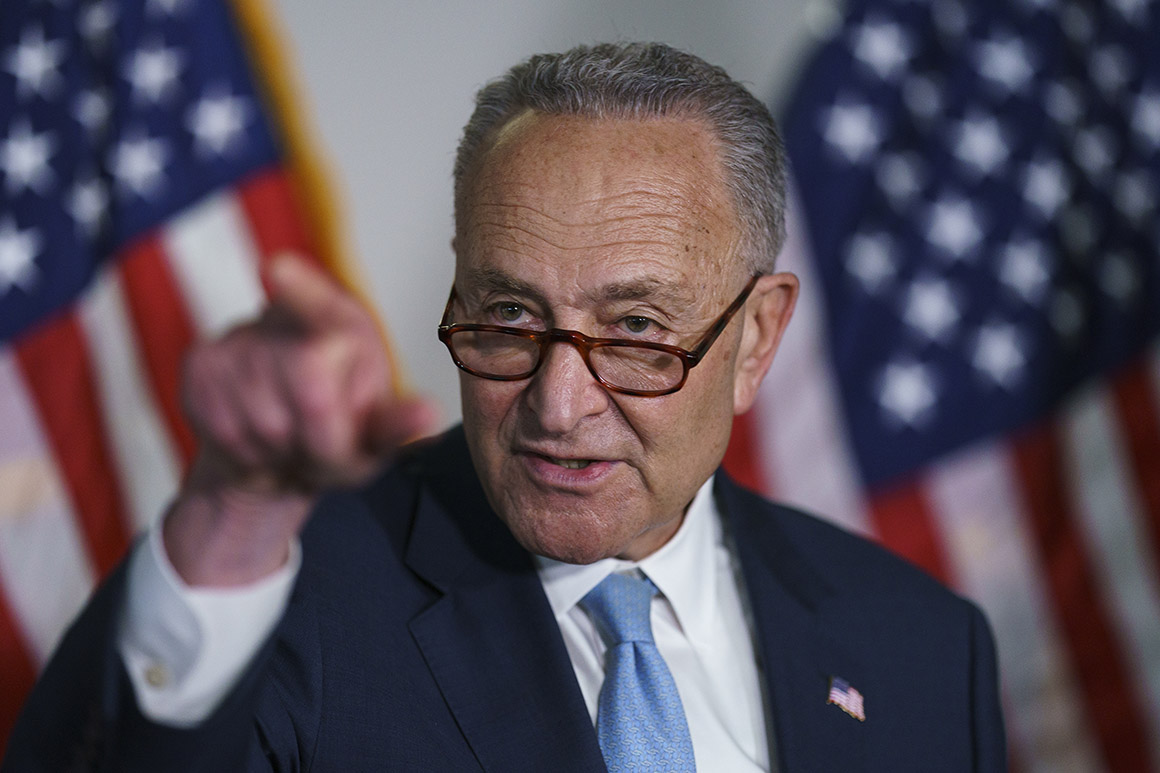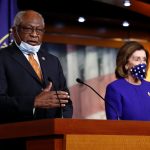The Senate voted on Monday to advance a broad bipartisan effort to counter China’s economic and geopolitical ambitions, though negotiators are still hammering out critical details of the legislation.
Senators voted 86-11 to move forward on the Endless Frontier Act, the base for the larger China bill. Ultimately it’s expected to include additional measures boosting technology research and development, revitalizing manufacturing sectors, and outlining a diplomatic and national security strategy for the U.S. in the Indo-Pacific region.
Senate Majority Leader Chuck Schumer, who has long pushed for a more hawkish approach to China, is leading the effort alongside Sen. Todd Young (R-Ind.), a rising voice in his party on foreign affairs.
The final product could pass the Senate before June and would represent the culmination of a two-month effort by Senate committees, at Schumer’s direction, to draw up bipartisan legislation aimed at out-competing China. The nascent agreement is also a bright spot for a chamber that has grown increasingly partisan in recent years.
Schumer called the bill a “once-in-a-generation investment in American science and American technology.”
“We can either have a world where the Chinese Communist Party determines the rules of the road for 5G, artificial intelligence and quantum computing — or we can make sure the United States gets there first,” Schumer said on the floor.
President Joe Biden supports the bill, the White House announced Monday, calling it “an important step in ensuring the U.S. remains globally competitive in the 21st century.”
The final legislation is likely to include bipartisan bills to boost semiconductor manufacturing, push back against China’s theft of U.S. intellectual property, and confront Beijing’s threats to U.S. national security, among others. Aides said they expect the Senate to wrap up its work on the effort by Memorial Day.
The centerpiece of the Endless Frontier Act is $100 billion in funding for the National Science Foundation to create a new technology directorate. But Young raised concerns after the Senate Commerce Committee adopted an amendment to the bill last week that would redirect billions of dollars instead to the Department of Energy. Young hinted that it could cause Republicans to yank their support from the final product, but said he was hopeful that negotiators could reach a compromise.
“I am not going to try to fundamentally re-work this product,” Young told POLITICO on Monday.
Last month, the broader China push was in danger of collapsing as Republicans expressed uneasiness about the price tag and other aspects of the bill. They also dinged Schumer for what they called a “rushed” process, though the bill has largely gone through regular order in the Senate.
It’s still not clear how many GOP senators will support the eventual agreement. Sen. Jim Risch of Idaho, the top Republican on the Foreign Relations Committee, said that while his bipartisan contribution alongside the panel’s chair, Sen. Bob Menendez (D-N.J.), was a solid product, he worried about what the final bill would look like.
“When they meld it together with another half-dozen parts, I don’t know what happens there. I think that’s a wild card,” Risch said at the time.
Sen. Marco Rubio (R-Fla.), an outspoken China hawk, lamented last month that “if we can’t agree on a bill regarding China, we should probably close this place.”
Nonetheless, Monday’s overwhelming vote suggests that the process appears headed toward successful completion.





















